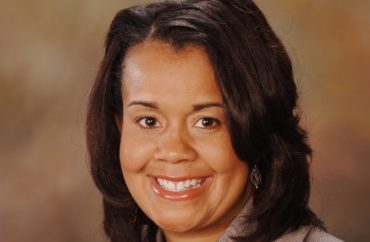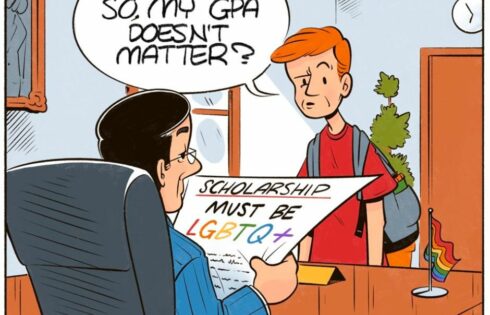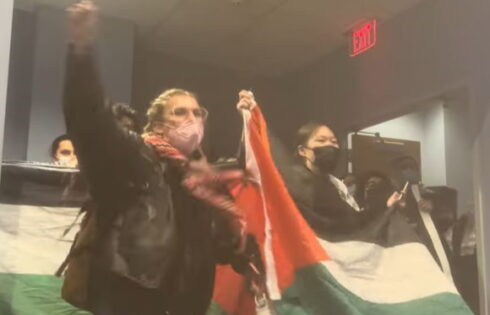
Said she experienced several microaggressions in one day
A Rutgers University professor recently shared her experience with “Conference While Black” and explained how she experienced several racist microaggressions in one day.
Kyra Sutton, who teaches human resources, described Wednesday in Inside Higher Ed her experience of “Conferencing While Black.” With conferences coming back after two years of COVID shutdowns, Sutton (pictured) wanted to share what happened to her in 2019 and how it left her “exhausted.”
She wrote:
I was at a large national conference with hundreds of other academics. Not surprisingly, very few Black people were in attendance. On those rare occasions when I saw someone Black, it felt comforting. In such interactions, you have an instant connection. Small talk occurs, and you quickly realize there legitimately are six degrees of separation. During that interaction, you feel hopeful.
But this feeling of hope quickly faded when she sat down two chairs from another attendee, who then moved her purse off the seat in the middle.
This action by this white conference attendee was not about making room for another person who might need a place to sit or leaving room for Sutton to put her purse or bag.
MORE: Black Harvard student breaks foot in puddle, rants about white supremacy
It was a microaggression, Sutton said, because the attendee clearly assumed she, as a black woman, would steal her purse.
“She looked over at me, snatched her purse off the empty seat between us and stuffed it under her own seat,” Sutton wrote. “I mean, I suppose I fit the profile of a thief: Black, 40-something, educated, sitting in the front row of an academic conference at 8:30 a.m. with a notebook in my hand.”
This threw her off to start the day.
“Experiencing a microaggression within 30 seconds of my arrival distracted me during the entire session,” she wrote. “I had been profiled. And I was reminded of how often I had been profiled in other situations: at the supermarket, at the mall, on flights.”
“By 8:35 a.m., I was exhausted. It was not physical exhaustion. I had slept well the previous night,” she said. “I was suffering from the mental fatigue that many Black people experience at conferences.”
Sutton shared another experience from that day. She was returning to her hotel room after a networking event when she realized that she did not have her key, which is needed to work the elevator. The white man she asked to press the elevator button for her asked if she was staying at the hotel and then said she’d need to get a new key.
This wasn’t because the next time Sutton got on the elevator she’d have to have a key anyways. It’s because the white man profiled her as not belonging there.
“This time I must have fit the profile of a hotel burglar: Black, 40-something, educated, wearing a red dress and a conference badge,” she wrote. “Just then, I found my room key and decisively pressed the button. When the elevator stopped at the other guest’s floor, I stared at him and waited for an apology. He left without a word.”
While networking benefits black individuals, it also leaves them “exhausted” Sutton said.
MORE: Kent State achieved 6 percent of ‘anti-racism’ goals
IMAGE; Kyra Sutton/LinkedIn
Like The College Fix on Facebook / Follow us on Twitter





Please join the conversation about our stories on Facebook, Twitter, Instagram, Reddit, MeWe, Rumble, Gab, Minds and Gettr.